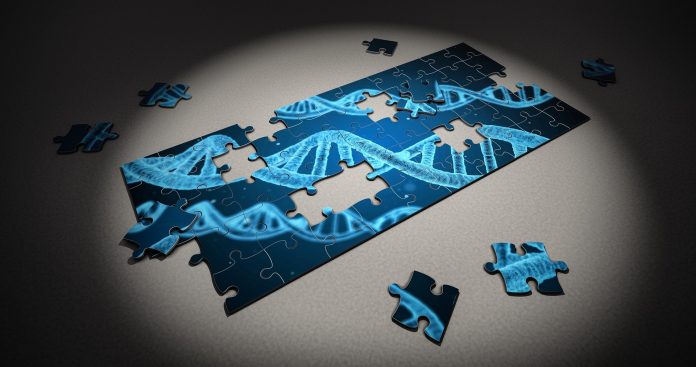Our body’s natural disease and infection-fighting resources make up our immune system. These defence mechanisms involve special types of cells and bodily substances that work together to keep us healthy.
Our immune system protects us from dangerous organisms called pathogens by recognizing and removing them. Some common pathogens include viruses and bacteria.1
The immune system has two ways of responding to pathogens. The quicker and more general response is called the innate immune response.2,3 The slower and more specific response is called the adaptive immune response.2,3
Our bodies’ first defence against disease and infection is thought to be via the innate immune responses.2 On the other hand, adaptive immune responses take longer to kick in but can be more precise in targeting the pathogen.3
The innate immune system
So what is the innate immune system? The innate immune system is composed of physical barriers like the skin and body hair, which protect our bodies from getting sick.3 It is also made up of white blood cells, that fight pathogens quickly. Mucosal surfaces (the lining of our insides) and the tears our eyes produce are also examples of the innate immune system shielding us from infection.3
Scientists are investigating how our genes, the DNA instructions we are born with, can affect the immune system. Genetic immunology is a new and interesting area of research with many unanswered questions.
A recent study published in the journal BioMed Central Genomics has added to our understanding of how specific genes can be involved in the innate immune system.4 In particular, this study looked at a group of genes called the polymerase associated factor 1 (PAF1) complex and its role in innate immune responses.
An immune system gene
How genes are used in our bodies is partly regulated by proteins in something called the PAF1 complex.5 A major goal of this complex is to ensure that genes associated with the innate immune system work properly to keep us healthy.4
The PAF1 complex can regulate how genes are used by attaching to certain parts of our DNA.5 For example, the complex can turn genes on or off or change how a particular gene functions. This level of fine-tuning helps our innate immune system to perform correctly.
The PAF1 complex is important for helping cells in our bodies grow and divide, responding to damage and stress, and controlling the immune system.4,5 When the PAF1 complex isn’t working right, diseases like cancer can arise.5
Researchers at the University of California found that the PAF1 complex may have many pivotal roles in innate immune responses.4 Evidence shows that the PAF1 complex can upregulate or downregulate different aspects of the innate immune system.4 However, the exact ways the PAF1 complex does this still needs to be clarified.
The researchers concluded that the PAF1 complex is crucial to the innate immune system. Discovering that the innate immune system becomes disrupted when the PAF1 complex is not working normally confirmed the importance of the PAF1 complex.4 Future studies are needed to better understand the role of genetic factors like the PAF1 complex in innate immune responses.
Ways to boost the immune system
Aside from genetic factors like the PAF1 complex that we cannot fully control, what are some ways we can boost our immune systems?
We can boost the function of our immune system in several ways. One of the best ways to boost the innate immune system is by maintaining a healthy lifestyle. Healthy lifestyle habits include
- exercising regularly,6
- getting enough sleep,7
- and eating a healthy diet rich in fruits and vegetables.8
Another way to enhance our immune systems is by minimizing stress. Chronic stress can weaken the immune system and make us vulnerable to infections and diseases.9 Studies have shown that meditation and deep breathing exercises are beneficial techniques for reducing stress.10
Taking care of your innate immune system
It is essential to consult with a healthcare professional if you have any concerns about your immune system and overall health. As our understanding of the innate immune system and acquired immunity expands with new research, so will our ability to keep ourselves healthy.
References
- Parkin J, Cohen B. An overview of the immune system. Lancet. 2001;357(9270):1777-1789. https://doi.org/10.1016/S0140-6736(00)04904-7
- Černý J, Stříž I. Adaptive innate immunity or innate adaptive immunity? Clin Sci. 2019;133(14):1549-1565. https://doi.org/10.1042/CS20180548
- Goronzy JJ, Weyand CM. The innate and adaptive immune systems. Goldman’s Cecil Med Twenty Fourth Ed. 2012;1:214-222. https://doi.org/10.1016/B978-1-4377-1604-7.00044-0
- Kenaston MW, Pham OH, Petit MJ, Shah PS. Transcriptomic profiling implicates PAF1 in both active and repressive immune regulatory networks. BMC Genomics. 2022;23(1):787. https://doi.org/10.1186/s12864-022-09013-6
- Jaehning JA. The Paf1 complex: Platform or player in RNA polymerase II transcription? Biochim Biophys Acta – Gene Regul Mech. 2010;1799(5-6):379-388. https://doi.org/10.1016/j.bbagrm.2010.01.001
- Martin SA, Pence BD, Woods JA. Exercise and respiratory tract viral infections. Exerc Sport Sci Rev. 2009;37(4):157-164. doi:10.1097/JES.0b013e3181b7b57b
- Besedovsky L, Lange T, Born J. Sleep and immune function. Pflugers Arch Eur J Physiol. 2012;463(1):121-137. https://doi.org/10.1007/s00424-011-1044-0
- Hosseini B, Berthon BS, Wark P, Wood LG. Effects of fruit and vegetable consumption on risk of asthma, wheezing and immune responses: A systematic review and meta-analysis. Nutrients. 2017;9(4):341. https://doi.org/10.3390/nu9040341
- Glaser R, Kiecolt-Glaser J. How stress damages immune system and health. Discov Med. 2005;5(26):165-169. Accessed January 4, 2023. http://www.ncbi.nlm.nih.gov/pubmed/20704904
- Brown RP, Gerbarg PL, Muench F. Breathing practices for treatment of psychiatric and stress-related medical conditions. Psychiatr Clin North Am. 2013;36(1):121-140. https://doi.org/10.1016/j.psc.2013.01.001



